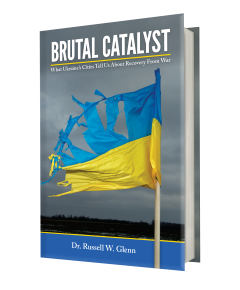Home > Open Access Journals > JSS > Vol. 8 > No. 4 (2015)
Author Biography
Dr. Myron Varouhakis is an independent international affairs researcher. In 2013 he was deployed to Afghanistan as a U.S. Department of Defense civilian and served as a strategic analyst for the ISAF Joint Command in Kabul. In the past he taught at the Brunel Centre for Intelligence and Security Studies in London and at the University of South Carolina in Columbia. His peer-reviewed publication record cuts across disciplines, including communication and intelligence studies. He earned his B.A. and Ph.D. degrees from Michigan State University. In 2009, he received the Walter L. Pforzheimer Award presented by the Central Intelligence Agency’s publication Studies in Intelligence. Dr. Mark Stewart is a consultant with CGI. From 2013 to 2014 worked as a U.S. Department of Defense civilian and was deployed to Afghanistan. Prior to his deployment he taught at San Joaquin Delta College and the University of the Pacific, both in Stockton, CA.
DOI
http://dx.doi.org/10.5038/1944-0472.8.4.1457
Subject Area Keywords
Afghanistan, Counterinsurgency, Psychology, Sociocultural dynamics in security, Threat assessment
Abstract
A yearlong U.S. Army field study in Afghanistan examined the demographics and threat perceptions of one of the most-at-risk populations, that of Afghan truck drivers working for NATO’s International Security Assistance Force Afghanistan (ISAF). The study collected data from 766 Afghan truck drivers at the U.S.-operated Kandahar Airfield in ISAF’s Regional Command South. The findings show a wide diversity in age of the Afghan drivers as well as in terms of their home province. The findings also show that although all Afghan truck drivers had acute awareness and understanding of the high risks and dangers of the job, they all noted that the attractive salary and scarcity of jobs were dominant reasons for staying on the job. Findings also reveal a strong resentment among the Afghan truck drivers about their treatment by ISAF soldiers, as for the lack of protection for them and their families after the 2014 departure of NATO forces. The findings can provide significant insights and enhance the understanding of scholars, counterinsurgency strategists, policymakers, and military planners about “Host Country Nationals” as an important population of the human terrain.
Recommended Citation
Varouhakis, Myron and Stewart, Mark. "ISAF'S Afghan Truck Drivers: The Overlooked Counterinsurgency Population." Journal of Strategic Security 8, no. 4 (2015)
: 92-113.
DOI: http://dx.doi.org/10.5038/1944-0472.8.4.1457
Available at:
https://digitalcommons.usf.edu/jss/vol8/iss4/7


